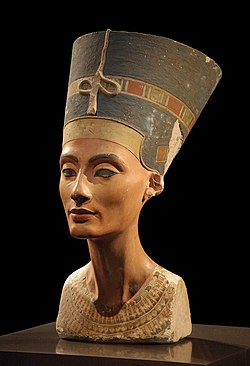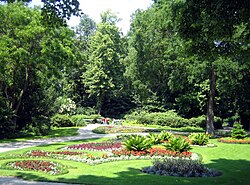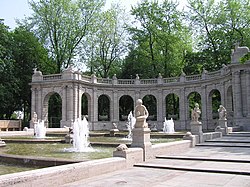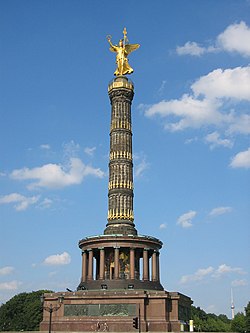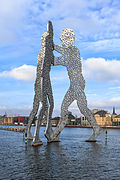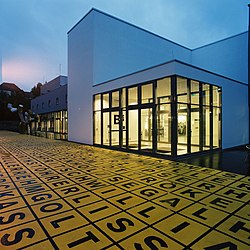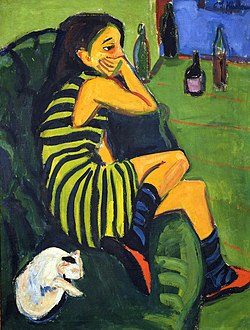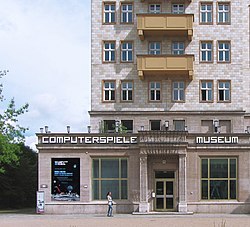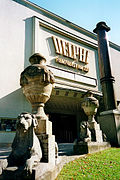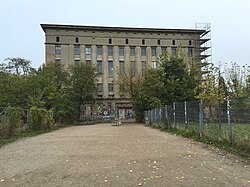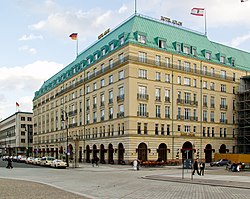Top Qs
Timeline
Chat
Perspective
List of tourist attractions in Berlin
From Wikipedia, the free encyclopedia
Remove ads
Berlin grew out of the historical city centre, the Nikolai quarter and its adjacent town of Cölln, both situated along the River Spree. It expanded its territories with areas such as Dorotheenstadt and Friedrichstadt. The creation of Greater Berlin in 1920 incorporated many former independent towns and municipalities such as Spandau, Charlottenburg and Köpenick.


Today, the urban environment of the metropolis also spreads to parts of Brandenburg and Potsdam. The decentralised development has resulted in a plethora of sights in Berlin – not just in the centre of the city, but also in the outlying boroughs. For various reasons among the world's most recognized symbols of Berlin are the Brandenburg Gate and its tallest landmark, the Berlin TV tower in Mitte.
Remove ads
Skyline
- View from Siegessäule
- View from Berliner Dom
- View from Leipziger Platz
- View from Reinickendorf
- View from Kreuzberg
- View from Siegessäule (West)
- View from Treptower
- View from Drachenberg
- View from Warschauer Brücke
- View from River Spree site in Mitte
World Heritage Sites
- Alte Nationalgalerie
- Bode Museum Lobby
- Statue at Altes Museum
- Beach at Museum Island
- White City (1931)
- Schillerpark Estate (1930)
Capital buildings
- Rotes Rathaus (City Hall) and Neptune Fountain
- Abgeordnetenhaus (City parliament)
- Abgeordnetenhaus (Interior)
- Bellevue Palace (Seat of German President)
- Paul Löbe Haus
- Reichstag building (German parliament)
- Reichstag dome (inside)
- Bundeskanzleramt German Chancellery
- Marie-Elisabeth-Lüders-Haus
- Dutch Embassy
- Japanese Embassy
- Mexican Embassy
- Indian Embassy
- Spanish Embassy
- Russian Embassy
Religious buildings
- Berlin Cathedral (Dom)
- Zionskirche
- Evangelisch-Lutherische Kirche
- Parochialkirche, Mitte
- Saint Matthew's Church
- St.-Thomas-Kirche, Kreuzberg
- Heilig-Kreuz-Kirche, Kreuzberg
- Gustav Adolf Kirche, Charlottenburg
- Sri-Mayurapathy-Murugan Temple
Neighbourhoods
- Winterfeldtplatz, Schöneberg
- Nikolaiviertel (Nikolai quarter)
- Prater in Prenzlauer Berg
- Pariser Platz with Brandenburg Gate
- Karl-Marx-Allee, monumental boulevard
- Friedrichstraße, shopping boulevard
- Bölschestraße in Friedrichshagen
- Asian market in Wilmersdorf
- Oranienstraße in Kreuzberg
- Lido stage, Kreuzberg
- Mexikoplatz, Zehlendorf
- Unter den Linden at Christmas
- Akazienstraße in Schöneberg
- Stadtbad Neukölln
Remove ads
Parks
- Luiseninsel at Tiergarten
- Entrance to Berlin Zoo
- Karaoke at Mauerpark
- Tropical House at the Botanical Gardens
- Schlosspark Schönhausen
- Gardens of the world, Marzahn
- Children's playground at Ernst-Thälmann-Park
Remove ads
Monuments
- East Side Gallery (former Berlin Wall)
- Marx-Engels monument
- Soviet War Memorial, Tiergarten
- Statue and Bell Tower at Olympiastadion
- LEGO Giraffe at Sony Center
- Villa Wannsee Conference
- Statue of Martin Luther
- Airlift Monument
- Soviet Cenotaph, Treptow
- Dragon at Moltke Bridge
- World Clock on Alexanderplatz
Remove ads
Museums
- Museum für Kommunikation
- Automobile at VW Forum
- Computerspielemuseum
- Staatsbibliothek
Remove ads
Entertainment venues
- Inside the Sony Center
- Berghain club
- Babylon Cinema
- Madame Tussauds in Berlin
- Admiralspalast
- Tempodrom (and Liquidrom)
- Kino International
- Inside Berlin State Opera
- Schaubühne in Charlottenburg
- Markthalle 9 (Street Food)
- Shopping Center LP12 Mall of Berlin
Notable buildings
- Quartier 207 - Galeries Lafayette
- GSW Building
- Badeschiff
- Axel Springer headquarter
- Urban mural
- Shellhaus
- Krematorium Berlin-Baumschulenweg
- The Kaufhaus des Westens department store
- Main building of former Tempelhof Airport
- Former St. Agnes Church
- Borsigturm
- Hotel Concorde
- Cosmonaut Streetart in Kreuzberg
- Haus des Rundfunks
Remove ads
Happenings
- Christmas Carols (Union Berlin)
See also
- St. Nicholas' Church
- St. Mary's Church
- Palaces and Parks of Potsdam and Berlin
- Historic cemeteries in Berlin
- Berlin Memorial Plaques
- Alte Kommandantur
- Berlin State Library
- The Kennedys Museum
- Akademie der Künste
- Remnants of the old city wall of Berlin-Cölln
- Philological Library - Free University of Berlin
External links
Wikiwand - on
Seamless Wikipedia browsing. On steroids.
Remove ads
















